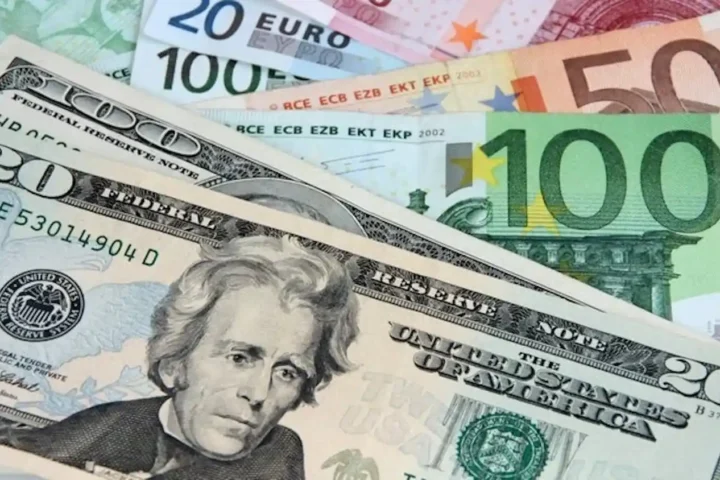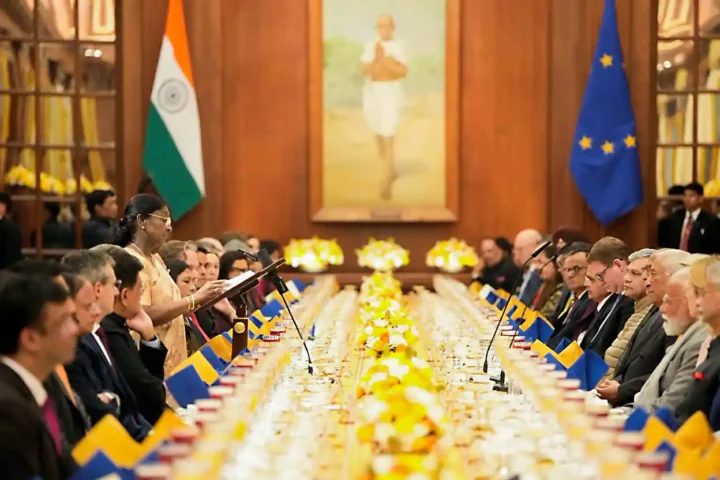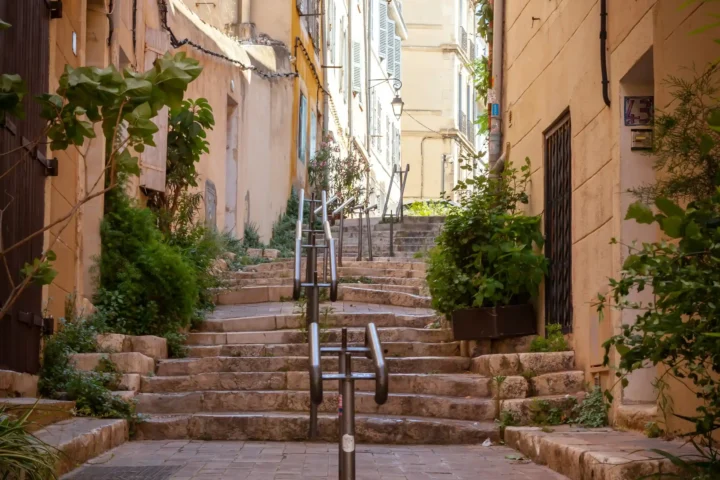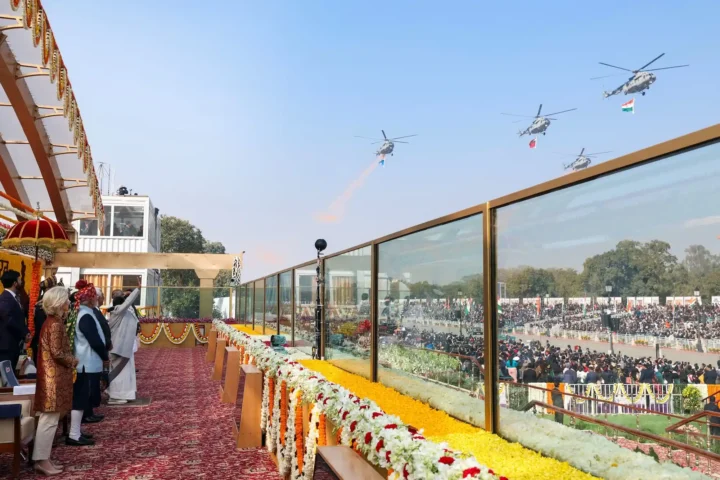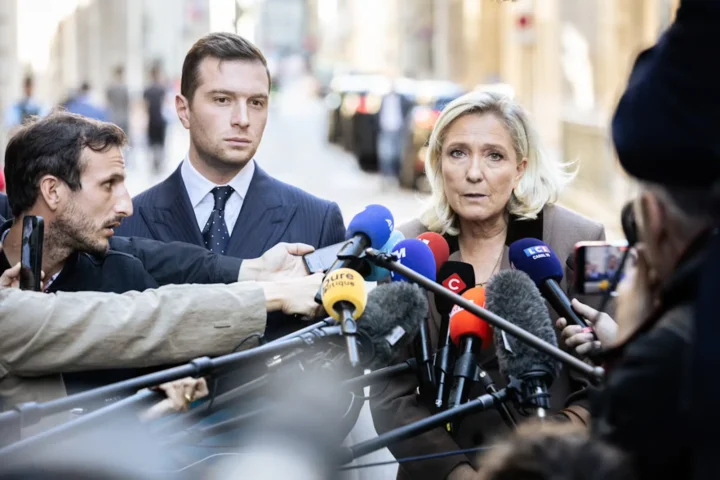In rural France, the Coordination Rurale farming union—known for its yellow hats and militant tactics—is rising fast, challenging the establishment FNSEA and aligning increasingly with the far-right National Rally. Fueled by anger over EU regulations, economic hardship, and perceived government neglect, the movement has surged in influence and electoral success. Led by controversial figures like Serge Bousquet-Cassagne and Lionel Candelon, it champions protectionism and rebellion against environmental oversight. Their aggressive approach and political ties signal a deeper shift in France’s countryside, where frustration is morphing into a potent, nationalist force that could shape the 2027 presidential election.
On a brisk evening on the outskirts of Auch in France’s southwest, a concrete hall echoed with applause, laughter, and the clinking of wine glasses. Yellow paper napkins adorned banquet tables soon to be weighed down with roast duck breast and Armagnac. But amid the celebratory warmth, something more jarring was taking place: the symbolic militarization of France’s farming revolt.
Serge Bousquet-Cassagne, a hulking figure in the French agricultural world with 17 court appearances to his name, stood solemnly on a makeshift stage. His outstretched arm pointed at his protégé, Lionel Candelon — duck farmer, protest veteran, and rising agitator. “I make you general of the army of the serfs,” he declared. The crowd roared.
This was no mere rural gathering. It was a coronation for a movement that is reshaping French agriculture, challenging the political establishment, and dragging the country’s increasingly disillusioned countryside toward the nationalist right. The Coordination Rurale union — easily recognized by their yellow hats and radical rhetoric — had just scored an unprecedented victory in France’s farming union elections. For the first time, they pierced the decades-long dominance of the establishment-aligned FNSEA.
But behind the roasted duck and rustic fanfare lies a darker current — one of hard-line defiance, creeping extremism, and what critics call “Trumpism in the fields.”
A Revolt Sown in the Soil
Born in the early 1990s as a response to reforms of the EU’s Common Agricultural Policy, the Coordination Rurale has long cast itself as a bulwark against globalism, green regulations, and urban technocracy. Back then, Brussels ended guaranteed prices for farmers, replacing them with subsidies tied to environmental stewardship. It was, for the Coordination Rurale, the moment the countryside was sold out.
They have been seething ever since.
Where the FNSEA cultivated compromise, Coordination Rurale brought pitchfork populism — and manure, which they’re fond of dumping at the doors of government offices. They’ve lit bonfires, blocked roads, and, most recently, won 14 of France’s 101 local agricultural chambers in February, up from just three in 2019. These chambers are not ceremonial. They help implement national and EU agricultural policies — and the yellow hats now have real leverage.
The revolt has been most potent in places like Gascony, near the Spanish border, where green pastures mask deep economic angst. Here, Bousquet-Cassagne’s outlaw charisma plays well. “In this country,” he bellowed at the Auch rally, “if you don’t burn cars you don’t get acknowledged.”
That rhetoric isn’t just venting. It’s strategy.
Feeding the Far Right
The Coordination Rurale’s ascent is also the story of how Marine Le Pen’s far-right National Rally (RN) found a foothold in France’s long-placid countryside. Disaffected farmers, abandoned by what they see as urban elites and EU technocrats, have become ripe targets for nationalist messaging.
In the 2024 European elections, a staggering 62% of Coordination Rurale supporters backed the RN or the even more extreme Reconquête party. FNSEA supporters? Just 31%.
Jordan Bardella, Le Pen’s youthful party president, has embraced them in turn, calling France’s farmers “the last guardians of our civilization.” And Le Pen herself has become a celebrity at rural fairs, welcomed like a savior. “Marine Présidente!” cried attendees at this year’s Salon International de l’Agriculture, as she pet cows and listened to grievances.
The message from the RN is simple and potent: Paris doesn’t understand you. Brussels doesn’t care. We do.
An Army of the Aggrieved
Lionel Candelon, the newly anointed “general of the serfs,” is emblematic of this movement’s new face — younger, media-savvy, and unapologetically combative.
A former soldier turned duck farmer, Candelon vaulted to prominence in 2017 by denouncing cheap Bulgarian duck meat on TV. He hasn’t stopped agitating since. In 2023, he was fined for online death threats to veterinary officials — which he called a moment of pressure during a bird flu crisis. That same year, he was questioned after helping block the offices of France’s biodiversity agency.
His supporters cheer him as a hero. His critics call it intimidation. Either way, the state has increasingly chosen not to escalate. As one local left-wing union leader said: “It’s Trumpism. There is a constant escalation, to the point where the administration just lies down.”
That resignation is part of the Coordination Rurale’s success. When Candelon boasts of disabling 179 speed cameras by covering them with tractor tires and fertilizer bags, it’s not seen as lawlessness — it’s seen as leadership.
Clash of Cultures: Green vs. Grain
What animates many rural farmers isn’t just money — it’s identity. They see themselves as stewards of the land, squeezed by regulations they didn’t write, meant to solve problems they don’t think they caused.
They bristle at EU pesticide bans while soybeans from Brazil pour in unchecked. They’re told to preserve hedgerows for birds, while new poultry farms are blocked by green activists. “Everyone going organic is not going to feed the planet,” one farmer in Lannepax said. “If we don’t produce it, other countries will.”
This environmental resentment has fueled the union’s most confrontational battles. They want fewer rules, more protectionism, and, above all, autonomy. “Leave us the hell alone,” Bousquet-Cassagne declared. It’s become a mantra.
The Political Harvest
It would be a mistake to dismiss this as rural theater. Coordination Rurale and the National Rally are tilling fertile political soil — and the 2027 presidential race may well be decided not in Paris but in places like Gers.
The rural vote in France has outsized influence. It isn’t just farmers — it’s butchers, bakers, villagers, and retirees whose lives orbit the agricultural economy. They’re angry, organized, and increasingly aligned with the far right.
Macron’s centrist movement has little to offer them. The left is seen as too urban, too green, too distant. The FNSEA, long the state’s preferred interlocutor, is seen as a lapdog.
Into this vacuum steps Coordination Rurale — rowdy, radical, and ready.
A Dangerous Prescription
But while Coordination Rurale taps into legitimate grievances, its direction should trouble anyone who believes in democratic pluralism and legal order.
Threats against inspectors, sabotage of public infrastructure, glorification of lawbreaking — these are not sustainable tactics in a functioning republic. Nor is their cozy relationship with a party whose roots lie in xenophobia and authoritarianism.
As Coordination Rurale’s own vice president admitted: “They are using us, and we are maybe using them too.” It’s a dangerous symbiosis. History shows that when populist movements make such alliances, it’s often the democratic order — not just the establishment — that gets burned.
A Battle for the Soil
France’s yellow hats are not just protesting agricultural policy — they are redefining the contours of political power in the French countryside. Their rise represents a broader European phenomenon: the revolt of the periphery against the center, the rural against the urban, the local against the global.
For now, they feast and toast their victories. But the fires they’ve lit — literal and political — will burn well into the next election cycle.
As we watch tractors roll into cities and slogans echo across farmlands, one thing is clear: the French peasantry, long thought dormant, is on the march again. And the republic is struggling to keep up.



